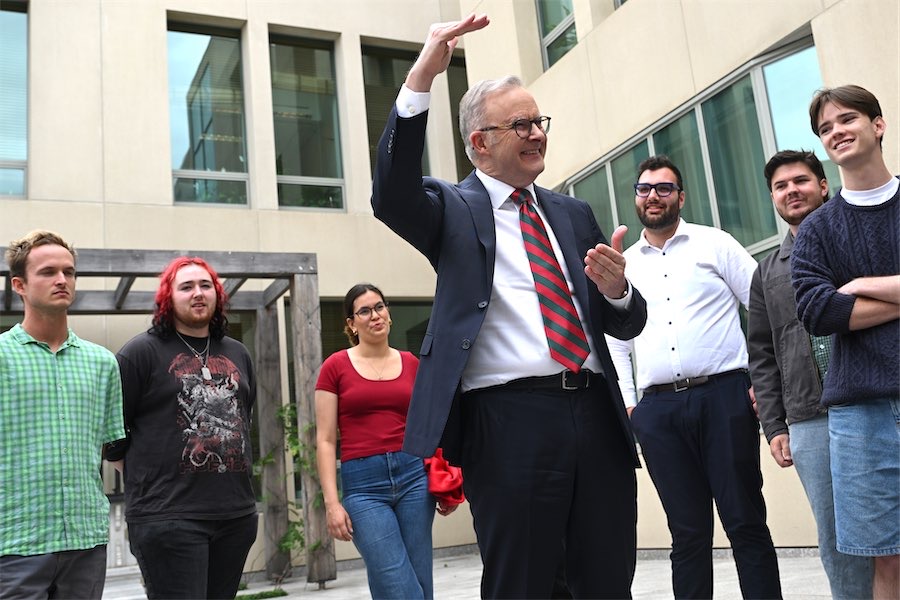
The federal government is being urged lock in plans to cut the HECS debts of university students before the end of 2024.
In a letter to Prime Minister Anthony Albanese, Greens leader Adam Bandt said the party would support efforts to cut student debt by 20 per cent for more than three million tertiary students.
The government has said the proposal would not come into effect until after the next election, due to be held by May, but Mr Bandt wants the measure enacted sooner.
“We don’t consider it fair to make this change dependent on the next election result,” Mr Bandt said in the letter.
“Student debt should not be held to ransom to an election campaign when there are the numbers in parliament to cut student debt right now.”
Mr Bandt said the minor party wanted the debt reduction go further, but was committed to working with the government to legislate it before the end of 2024.
The policy is set to affect $16 billion of student debt, with those with the average HECS bill of $27,600 to see it reduced by more than $5500.
Treasurer Jim Chalmers said the measure would provide economic relief for young Australians.
“(The policy) will make a meaningful difference to millions of Australians, and that’s a good thing,” he told ABC Radio.
“We’ve got our own agenda, which is about managing the budget responsibly, finding room where we can to help people doing it tough.”
Shadow Treasurer Angus Taylor criticised the proposal, saying taxpayers would ultimately foot the bill.
“The average Australian household will pay $1600 for this, and the average Australian household doesn’t have the HECS debt,” he told Canberra radio station 2CC.
“The people who are going to benefit from this the most are lawyers, doctors, those with postgraduate business degrees. These are the highest earners in our economy.”
The federal government moved earlier in 2024 to cap indexation on HECS at the lower of either the rate of inflation or the wage price index, after the indexation rate jumped above seven per cent.
According to federal education department projections, a social worker with a debt of $50,000 entering the workforce on a full-time income of $70,000 would repay $1300 less in the first year under the plan.
They would pay off their debt over 10 years and reduce their total repayment amount by $11,555 as their income increased over the decade.
An engineer with a $33,000 student debt from their bachelor degree and a $75,000 starting salary would enjoy an extra $1000 in their first year of repayments, and save more than $7400 in the six years it took to clear their study debt.
A nursing graduate with a HECS debt of $15,000 and a starting annual income of $56,000 would save an average of $1100 each year, the figures showed.
In both the case of the nurse and of the engineer, their student debts would be paid off in roughly the same time it would take under the existing arrangements.
Students of humanities, communications and human studies will be viewing the planned 20 per cent discount in conjunction with tuition-fee spikes of up to 113 per cent following the Morrison government’s Job-ready Graduates scheme.
Labor has been under pressure to scrap the scheme, which hiked the prices of certain degrees and subsidised others to encourage students towards careers in industries facing labour shortages.
Who can be trusted?
In a world of spin and confusion, there’s never been a more important time to support independent journalism in Canberra.
If you trust our work online and want to enforce the power of independent voices, I invite you to make a small contribution.
Every dollar of support is invested back into our journalism to help keep citynews.com.au strong and free.
Thank you,
Ian Meikle, editor





Leave a Reply